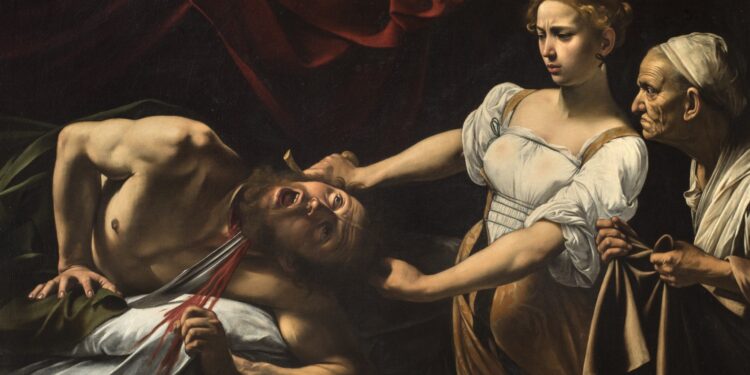Born on 29 September 1571, Michelangelo Merisi da Caravaggio remains one of the most influential painters of the Baroque era, celebrated for his dramatic use of light and shadow and his unflinching realism. His turbulent life and revolutionary artistry continue to fascinate art historians and admirers worldwide.
A radical new vision of art
Caravaggio broke away from the polished idealism of Renaissance masters. Instead of depicting saints and biblical figures as ethereal beings, he painted them as real people, often using peasants, labourers, and prostitutes as his models. His technique of chiaroscuro—contrasting intense light with deep darkness—gave his works a striking emotional intensity. Paintings such as The Calling of Saint Matthew and Judith Beheading Holofernes shocked audiences with their rawness but also set a new standard for religious art.
Success and scandal in Rome
By the late 1590s, Caravaggio was in demand by powerful patrons, including Cardinal Francesco del Monte. His commissions transformed church interiors across Rome. Yet, his personal life was marked by violence, quarrels, and brushes with the law. Caravaggio’s temper and restless nature often overshadowed his genius, culminating in 1606 when he killed a man during a brawl and was forced to flee the city.
Exile and final years
On the run, Caravaggio continued to paint, leaving masterpieces in Naples, Malta, and Sicily. His work grew darker and more introspective, reflecting his troubled state of mind. In 1610, while seeking a papal pardon to return to Rome, Caravaggio died under mysterious circumstances at the age of 38. Some accounts point to fever, others to poisoning or political intrigue.
A lasting legacy
Caravaggio’s influence was profound. His followers, known as the Caravaggisti, spread his dramatic style across Europe, shaping the works of painters in Spain, France, and the Netherlands. Centuries later, his revolutionary realism is still seen as a turning point in Western art, bridging Renaissance idealism with modern visual storytelling.
REFH – Newshub, 29 September 2025




Recent Comments